

Thessalonians
Spring '24 Sunday Lecture Hall Class


Church Discipline & Concluding Thoughts
May 26, 2024 • Matthew Allen • 2 Thessalonians 3:6–18
Whenever sin is overlooked and repentance is not emphasized—it risks creating a church indistinct from secular society. Thus, for a local church to truly reflect the spirit of the New Testament church, it must thoughtfully and deliberately apply disciplinary practices to build genuine and intimate fellowship among its members.


Thanksgiving and Encouragement
May 19, 2024 • Matthew Allen • 2 Thessalonians 3:1–5, 2 Thessalonians 2:13–17
With the primary reason for writing the second letter, exposing and refuting the false teaching they had received and helping them better understand what would happen when the Lord returns, Paul now moves to cover more general issues. There are two sections of thanksgiving and prayer in 2 Thessalonians (1:3, 11) and here in 2:13-14, 16; 3:1, 5.


Lesson 11 - The Day of the Lord
May 12, 2024 • Matthew Allen • 2 Thessalonians 2:1–12
Many Thessalonians were overwhelmed with despair due to a false prophecy claiming that the Lord had already returned, causing them to fear that they had missed His return and, consequently, lost their salvation. In addressing this error, Paul provides a complex explanation, unique to this passage, about why this prophecy could not be accurate. He clarifies that certain events had to precede the Lord's return, yet to occur. Paul’s primary objective here was to reassure and comfort the Thessalonians. His response, though challenging to interpret due to its unique details and lack of depth in explanation, ultimately enriches our understanding of the events surrounding the second coming of Christ.


Lesson 10 - Thanksgiving and Prayer
May 5, 2024 • Greg Morrison • 2 Thessalonians 1
Ongoing problems and questions in the Thessalonian church necessitated Paul’s writing of a second letter soon after the first. While these problems may have persisted, Paul was still very pleased with the growth and progress of the church and encouraged them to do even more. 2 Thessalonians addresses three essential matters: · Ongoing persecution. · The return of Jesus. · The problem of idleness.


Lesson 9 - General Issues, Part 2
April 28, 2024 • Matthew Allen • 1 Thessalonians 5:16–28
Paul has begun wrapping up his brief letter to the Thessalonians and now directs his thoughts to the spiritual qualities that must characterize Christians. He has just addressed Christian responsibilities to each other (5:12-15) and will now address the Christian’s spiritual duties (5:16-18) as well as the work of the Holy Spirit (5:19-22). Then, he will pen his final farewell and benediction (5:23-28).


Lesson 8 - General Issues, Part 1
April 21, 2024 • Matthew Allen • 1 Thessalonians 5:12–15
Paul will now begin to conclude his letter by addressing various general issues relevant to life within individual congregations, having previously tackled significant topics such as sexual conduct, brotherly love, and misunderstandings about the end times in 4:1–5:11. His closing remarks are similar to what is found in other New Testament writings, like Romans 13:1–7, 1 Peter 2:13–17, 1 Peter 1:6–7, and James 1:2–4. Specifically, in verses 12-22, he revisits the themes of Romans 12:9–18, integrating early church teachings tailored to the specific needs and shortcomings in the faith of the Thessalonian church. This section stresses the importance of these teachings for the thriving of the early Christian churches, suggesting that modern churches should also consider these teachings carefully.


Lesson 7 - Like a Thief in the Night
April 14, 2024 • Matthew Allen • 1 Thessalonians 5:1–11
As Chapter 5 begins, we see Paul moving from addressing misunderstandings about Christ's return to emphasizing its significance through a balance of two concepts: the unpredictability of the timing and the possibility of delay. Drawing from Jesus' teachings, Paul urges constant vigilance, advocating for a life reflective of the expectation that Christ could return at any moment and preparing for the possibility that it may not happen soon. Given the uncertain timing of Christ's return, these instructions are intended for practical guidance rather than speculative prediction. They focus on distinguishing ourselves from the world in conduct and outlook.


Lesson 6 - The Hope of Christ's Return
April 7, 2024 • Matthew Allen • 1 Thessalonians 4:13–18
In Thessalonica, a young church wrestled with serious questions about life, death, and hope. Paul, recognizing their struggle, addressed these concerns in this part of his letter, which has served as a source of hope through the ages. During his time with them, Paul had effectively communicated the doctrine of Jesus’ second coming to the Thessalonians, ensuring they understood its certainty. However, because of his quick and unplanned departure, not all issues related to this event were addressed, with new challenges emerging after his departure.


Lesson 5 - A Life Worthy of God's Calling
March 31, 2024 • Matthew Allen • 1 Thessalonians 4:1–12
Paul’s letters were usually characterized by two main sections: a doctrinal discussion and practical application in day-to-day Christian living. Paul follows that pattern in 1 Thessalonians. Because the foundation of doctrine matters, it brings expectations to live by in how we live. The main teaching section concludes at 3:13. Now, the appeal to pursue excellence comes with it.


Lesson 4 - Thanksgiving, Prayer, and the Joy of Fellowship
March 24, 2024 • Matthew Allen • 1 Thessalonians 3
Like many places in Scripture, the chapter division leaves much to be desired. Therefore, verse 1 connects these thoughts to what Paul said in chapter 2. He had wanted to come to them time and time again but was hindered by Satan (2:18), so Paul and Silvanus sent Timothy to see them to "strengthen and encourage you concerning your faith so that no one will be shaken by these afflictions" (3:2b-3a). Paul deeply opened his heart as he expressed his concerns to them. His forced separation from the Thessalonians seemed to intensify his anxiety for them.


Lesson 3 - Paul's Arrival and Ministry in Thessalonica
March 17, 2024 • Matthew Allen • 1 Thessalonians 2
The middle part of the first century found the Greco-Roman world saturated with all sorts of religious cults and systems of philosophy. With the advancement of Roman roads and merchant trade, eastern traditions merged with the West, combining principles of piety and morality with superstition and license. It appears these false teachers were on the verge of having success. So, Paul spends a little time asserting that when he and his group of teachers came to them, it was with the highest standards of morality and authenticity.


Lesson 2 - Thessalonica: A Model Church for Today
March 10, 2024 • Matthew Allen • 1 Thessalonians 1
1 Thessalonians 1 begins with a prayer of thanksgiving. The Thessalonian Christians would have had much to be thankful for. They had embraced the gospel under challenging circumstances. The fruit of their faith was evident, and this chapter is filled with praise and thanksgiving for their commitment to God and determination to honor Christ in everything. They became part of God's chosen people because they had decided to believe through their free will. In verse 4, the apostle says God loves them and that he has chosen them. This is the Christian identity: chosen by God and loved by God. In Paul’s prayer, we see what it means to live inside this relationship day by day.


Lesson 1 - Introduction
March 3, 2024 • Matthew Allen
It is generally believed that 1 & 2 Thessalonians are some of the earliest of Paul’s letters, most thinking them written around 50-51 AD.
